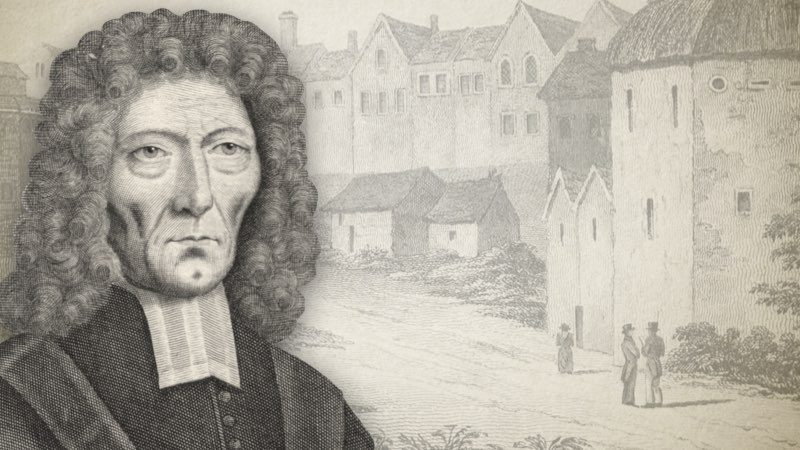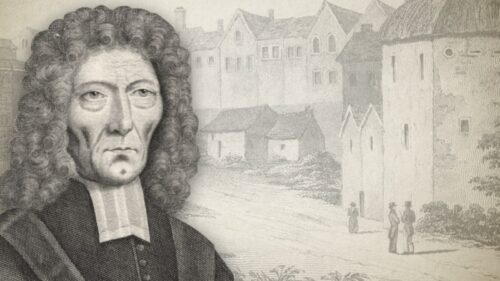-
The Title Page
The Everlasting Covenant, A Sweet Cordial For A Drooping Soul, Or, The Excellent Nature Of The Covenant Of Grace Opened Psalm 89:33: “My Covenant I will not break, nor alter the thing that is gone out of my Lips.” In A Sermon Preached January the 29th, At Abingdon, In The County Of Berks, At The Funeral Of Mr. Henry Forty, Late Pastor Of A Church Of Christ, Who Departed This Life Jan. 25th 1692, And Was Interred At Southwark Wherein The Arguments Urged To Prove The Covenant Of Redemption A Distinct Covenant From The Covenant Of Grace, Are Examined, Weighed, And Found Wanting To which Is Added, An Elegy On The Death Of The Said Minister By Benjamin Keach (1640-1704), Pastor Of A Church Of…
-
Preface
The 1646 Westminster Confession Of Faith, Article 7, Paragraphs 2&3: ”The first covenant made with man was a covenant of works, wherein life was promised to Adam, and in him to his posterity, upon condition of perfect and personal obedience. Man by his fall having made himself incapable of life by that covenant, the Lord was pleased to make a second, commonly called the covenant of grace: wherein he freely offered unto sinners life and salvation by Jesus Christ, requiring of them faith in him that they may be saved, and promising to give unto all those that are ordained unto life his Holy Spirit, to make them willing and able to believe.” The 1689 Second London Baptist Confession Of Faith, Article 7, Paragraph 1:…
-
Original Preface
To the Congregation at Horsly-down, who were the Auditors of this Sermon, the Author wishes all the Blessings of the Everlasting Covenant, even the sure Mercies of David. Beloved, The Subject treated on, in this ensuing Discourse, is of the highest Concernment; and tho' the Substance of what is herein contained, you have heard from the Pulpit, yet I am persuaded, it will not be unpleasing to you, to see those great Truths presented to your view from the Press. Some of you know, that I had not time to go through the Whole of my Work the first time, therefore I insisted again on it, the Lord's Day following; and yet some Things I have added, which was at neither of those seasons delivered,…
-
Introduction
The Everlasting Covenant, A Sweet Cordial for a drooping Soul: Or, The Blessed Nature Of The Covenant Of Grace Opened Beloved, The Solemn Occasion of this Assembly, may put us all in mind of our Mortality, Death is certain; all must die (as the Psalmist says) What Man is he that liveth and shall not see Death? Can he deliver his Soul from the Hand of the Grave? Ps 89:48. Wicked Men die, so do the Godly, and as do the People, so do their Ministers, The Fathers, where are they? and the Prophets, do they live for ever? Yet there is a vast Difference between the Death of the Ungodly, and the Death of the Godly, &c. But to proceed, the Text I am…
-
Chapter 1 – Identifying The Covenant Of Grace
Beloved, This Covenant was Primarily made with Jesus Christ, the Second Person of the blessed Trinity, as Mediator, and as the Root, common Head and Representative of all the Elect, or all that the Father hath given to Christ, we read of Two Covenants, an Old, and a New, a First, and a Second, a Covenant of Works, and a Covenant of Grace. The First Covenant was made with the First Adam, for himself and his Posterity, as the common Head of all Mankind, and so also there was a Covenant made with the Second Adam for himself, and all those chosen in him, or all his Seed; and though this Covenant (as to Revelation of it) is called the Second Covenant, yet it was…
-
Chapter 2 – Describing The Covenant Of Grace
2dly. I shall open the Excellent Nature of this Glorious and Everlasting Covenant. 1. 'Tis, you have heard, all of Grace, as it respecteth us, tho' Jesus Christ paid dear for it; he procured all the Blessings of it for us, by his Merits, i. e. by his Perfect Obedience and Suffering: By Grace ye are saved through Faith, and that not of yourselves, it is the Gift of God, Eph. 2.8. not of Works; lest any man should boast: for we are his Workmanship created in Christ Jesus to good Works, v. 10. not by Works of Righteousness that we have done, but by his Mercy he saved us, Tit. 3.5. 2. 'Tis as it appears from hence, an Absolute, and not a Conditional…


